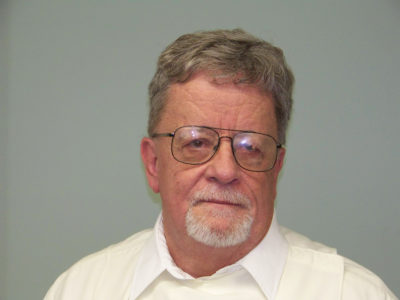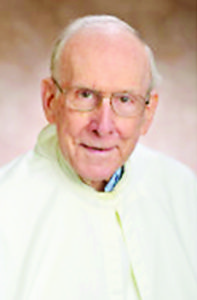
Father Jeremy Tobin
Millennial reflections
By Father Jeremy Tobin, O.Praem
We have celebrated the core of our faith: the death and resurrection of Jesus Christ. We now come to the end, the great Feast of Pentecost. We hear the Prophet Joel cry out, “I will pour out my spirit on all flesh!” Remember Jesus reading that passage in the synagogue in Nazareth?
Bishop John Botean’s commentary in the previous edition of Mississippi Catholic inspired me to reflect further on the work of the Holy Spirit in the church even today. Bishop Botean comes from the Romanian Catholic Church, one of the Eastern Byzantine Churches in communion with the Pope. He commented on the theology of Baptism as developed by Rev. Alexander Schmemann, dean of St. Vladimir Orthodox Seminary in New York. His column compared the Eastern Church’s treatment of the Holy Spirit to Quakers.
He described Quaker meetings where they sit in a church and focus on the Spirit’s presence and what it would prompt them to do. He ends by saying “The emphasis given to the Holy Spirit in Byzantine theology is explicit, but different than the Charismatic movement. He quotes Father Schmemann’s response to the oft asked question “Is Jesus Christ my personal savior?” His response is, “Jesus Christ is the savior of the world. The Holy Spirit is my personal savior, because “No one can say, Jesus is Lord, except by the Holy Spirit.” (1 Co. 12:3).
The Eastern Church has a rich theology around the Holy Spirit. They emphasize the Holy Spirit is at work in the sacraments (they call them mysteries) allowing for the movement of the heart and feelings in response to God. Barriers are lifted and people of faith follow where the Spirit leads.
This leads us right into Pentecost and the great conclusion to the season of Easter. Down through the ages the Holy Spirit leads and guides the Church, calling people to lead others to specific ways to live the Gospel, even to our own time. We have seen prophetic figures such as Dr. Martin Luther King, Jr., and Bobby Kennedy, rise up and lead us to greater possibilities of freedom and hope. They gave their lives in the cause of justice and freedom, but the cause remains active. We celebrate his year the 50th anniversary of Martin Luther King’s Poor People’s Campaign Mule Train that went from Marks, Mississippi to Washington, D.C. to protest the evils of war, racism and income inequality.
The Spirit continues to move us forward even when the resistance to change intensifies. I think of Rev. William Barber of North Carolina. When he preaches he reminds me a lot of Dr. King. His use of scripture to illustrate social justice connects modern issues is to a higher, moral level. Rev. Barber has resurrected the Poor People’s Campaign. Reflecting the style of Dr. King, He says “There is something wrong in America!”
Society must be made aware, as the campaign points out, that “People should not live or die from poverty in the richest nation ever to exist. Blaming the poor and claiming that the United States does not have an abundance of resources to overcome poverty are false narratives used to perpetuate economic exploitation, exclusion and deep inequality.” This reflects the 72nd Psalm, “The Lord hears the cry of the poor.” Another principle, “We recognize the centrality of systemic racism in maintaining economic oppression must be named, detailed and exposed empirically, morally and spiritually. Poverty and economic equality cannot be understood apart from a society built on white supremacy.”
These are but two of twelve fundamental principles to form a moral movement, a moral revival. From now until June 23, people will carry out sustained nonviolent actions in some 30 states, hoping to break through toxic attitudes and shift the moral narrative.
I end with a passage from Isaiah 10 which captures the spirit: “Woe unto those who make unjust laws, to those who issue oppressive decrees, to deprive the poor of their rights, and withhold justice from the oppressed of my people, making widows their prey, and robbing the homeless child.”
(Father Jeremy Tobin, O.Praem, lives at the Priory of St. Moses the Black, Jackson.)

 Father Xavier Colavechio, O. Praem., age 86, a member of the Norbertine Community of St. Norbert Abbey died March 22.
Father Xavier Colavechio, O. Praem., age 86, a member of the Norbertine Community of St. Norbert Abbey died March 22.